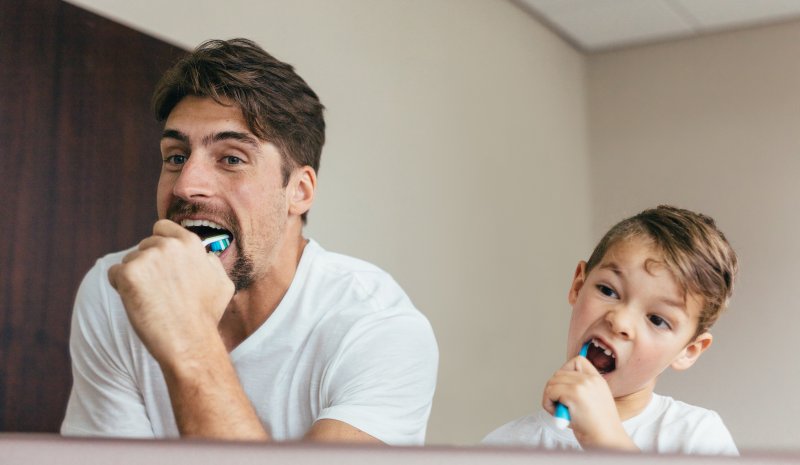
Limiting the amount of time you spend outside, wearing a mask, and washing your hands on a regular basis are all absolute musts if you want to protect yourself and the people around you from COVID-19. But when it comes to disease prevention, you can’t forget to care for your smile. Your mouth is a key entry point for many different kinds of infections; if you want to keep COVID-19 and other illnesses at bay, remember these 5 oral hygiene tips from your dentist in East York.
1. Make Sure Your Hands are Clean Before You Brush
You’ve probably already heard that touching your face or mouth carries a risk of transmitting the virus. This still holds true even while you’re holding a toothbrush or dental floss. Don’t forget to wash your hands thoroughly before you begin your regular oral hygiene routine.
2. Keep Your Toothbrush Free of Germs
At least once a week, you can disinfect your toothbrush by boiling it for five minutes or putting it through a dishwasher cycle. You can also try soaking it in a mixture of 10% household bleach and 90% water. And of course, you should run your toothbrush under hot water immediately after brushing in order to kill any germs that might be left behind.
3. Store Your Toothbrush Properly
When you’re done with your brush, keep it in an open container such as a cup or a tray; do not place it in a dark drawer or cabinet where bacteria can breed more easily. Make sure the container itself is periodically disinfected in the dishwasher.
4. Never Share Toothpaste or Dental Floss
Using someone else’s floss or toothpaste tube isn’t necessarily a very hygienic habit to begin with, but during the COVID-19 pandemic it could end up being a very dangerous mistake. Many people carry the virus for up to five days before they start noticing any kind of symptoms, so handling someone else’s supplies could lead to an infection even if neither of you appears to be sick at the time.
5. If You Do Get Sick, Throw Out Your Toothbrush
As a general rule, you should never keep your old toothbrush after you’ve recovered from any kind of viral or bacterial infection. There could still be harmful organisms living on the bristles, and it is generally better to start fresh with a new brush (especially since you should change toothbrushes every three to four months anyway).
While the above habits may not prevent COVID-19 infections entirely, they will go a long way towards protecting your overall health. Keep the rest of your body as safe as possible while you clean your smile!
